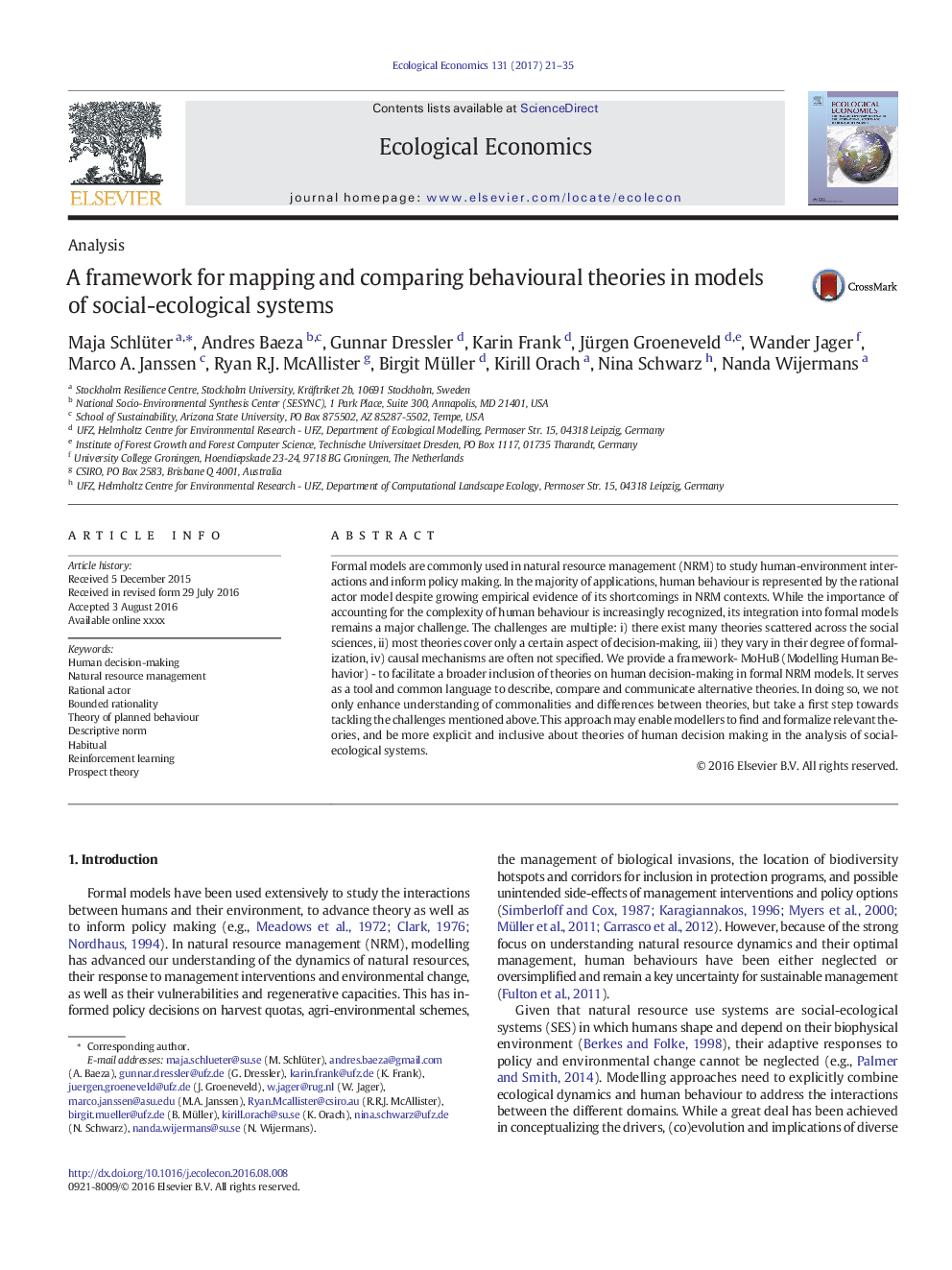ترجمه فارسی عنوان مقاله
چارچوبی برای نقشه برداری و مقایسه نظریه های رفتاری در مدل های سیستم های اجتماعی-محیطی
عنوان انگلیسی
A framework for mapping and comparing behavioural theories in models of social-ecological systems
| کد مقاله | سال انتشار | تعداد صفحات مقاله انگلیسی |
|---|---|---|
| 87379 | 2017 | 15 صفحه PDF |
منبع

Publisher : Elsevier - Science Direct (الزویر - ساینس دایرکت)
Journal : Ecological Economics, Volume 131, January 2017, Pages 21-35
ترجمه کلمات کلیدی
تصمیم گیری انسانی، مدیریت منابع طبیعی، بازیگر منطقی عقلانیت محدود، نظریه رفتار برنامه ریزی شده، هنجار توصیفی، عادت، تقویت یادگیری، نظریه چشم انداز،
کلمات کلیدی انگلیسی
Human decision-making; Natural resource management; Rational actor; Bounded rationality; Theory of planned behaviour; Descriptive norm; Habitual; Reinforcement learning; Prospect theory;

